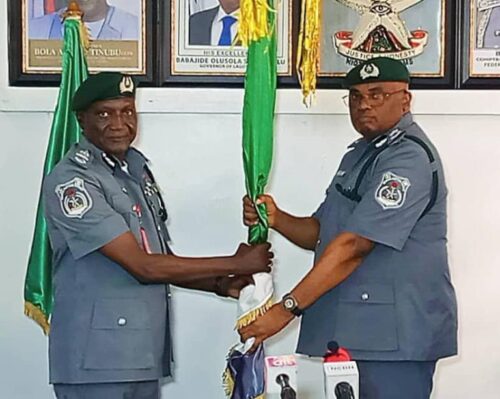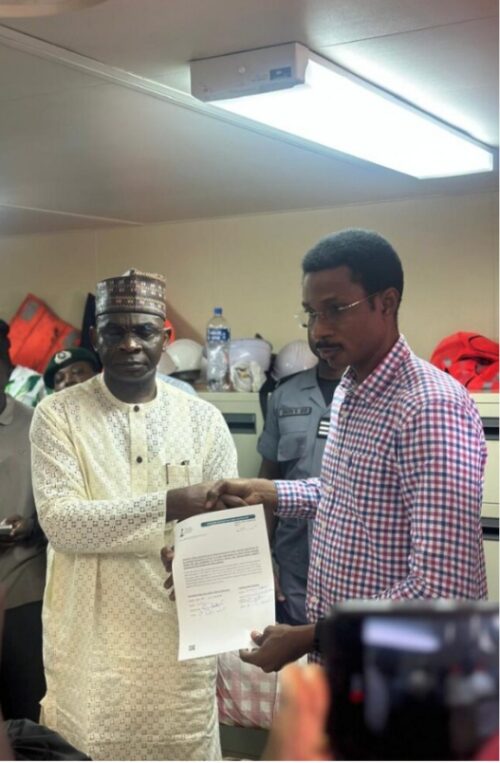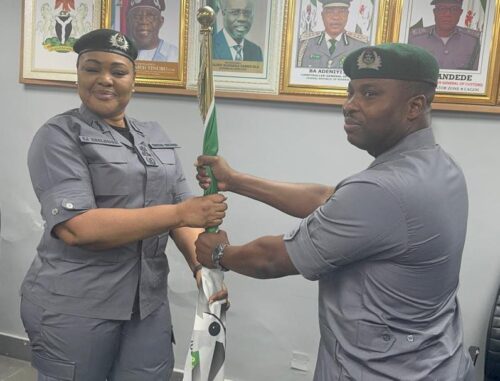Nigeria Loses $4bn Annually to Port Inefficiencies, Says Nweke
Nifemi Coker

Nigeria is losing about $4 billion every year to inefficiencies and delays at its seaports, despite recording ₦1.3 trillion in customs revenue in the first quarter of 2025, maritime expert Dr. Eugene I. Nweke has revealed.
Speaking at the League of Maritime Editors’ one-day seminar in Apapa, Lagos, Nweke stressed that tackling these losses must be a top priority as the country assumes the chairmanship of the World Customs Organization (WCO) Council.
He explained that the role, while prestigious, should be treated as a tool for reform and economic transformation rather than as a ceremonial title.
“This is not just a medal to display or a feather in our cap. It is an opportunity to harmonize African trade procedures, reform our ports, and position Nigeria as a continental trade hub,” Nweke, represented by Francis Aneze Chukwu, told participants at the event.
He noted that on July 1, 2025, Nigeria became the first African country to chair the WCO Council, a body representing over 180 customs administrations and covering 98 percent of global trade. According to him, the appointment places Nigeria at the center of global customs reforms with the potential to drive continental trade growth.
Nweke commended the reforms already introduced under the Comptroller-General of Customs, Bashir Adewale Adeniyi, including the Time Release Study to address port delays, the adoption of data analytics for risk-based inspections, advance ruling applications for tariff clarity, the Authorized Economic Operator scheme for trusted traders, the B’Odogwu single-window platform for trade facilitation, and the deployment of rapid scanners.
“These reforms are not ends in themselves, but they form the springboard for maximizing Nigeria’s WCO chairmanship and unlocking opportunities presented by the African Continental Free Trade Agreement (AfCFTA),” he said.
He argued that Nigeria’s leadership position could accelerate AfCFTA implementation through harmonized customs procedures, mutual recognition of AEOs across Africa, adoption of international data standards, and wider deployment of Time Release Studies.
“This amounts to leadership with practical outcomes. Nigeria must not squander the moment. If we consolidate reforms, harness AfCFTA, enthrone transparency, and redefine fiscal policies, the country will not only lead Africa in customs administration but also stand tall as a continental beacon of trade and industrialisation,” Nweke said.
He, however, warned that poor infrastructure, policy inconsistencies, bureaucratic bottlenecks, and entrenched corruption could erode the benefits of the WCO chairmanship if left unaddressed. As remedies, he proposed institutionalised data sharing among trade agencies, regional expansion of the AEO programme, sustaining scanner investments through public-private partnerships, and regular auditing of Customs’ performance.
Nweke also urged maritime journalists to move beyond surface reporting by interrogating reforms with data, educating stakeholders, and shaping narratives responsibly. “Stop hyping undue praises that make us a collective ridicule,” he admonished.
Former General Manager, Corporate Affairs of the Nigerian Ports Authority (NPA), Captain Iheanacho Ebubeogu, in a goodwill message, emphasized that Customs remains the enforcement authority at the nation’s ports and urged stakeholders to rally behind Adeniyi. He described the WCO as “a salad of interest, national, regional, and global, where diplomacy and politics dominate,” stressing that reputation management was essential for sustaining Nigeria’s credibility.
Earlier in her welcome address, President of the League of Maritime Editors, Mrs. Remi Itie, hailed Adeniyi’s emergence as a historic milestone, noting that Nigeria’s new position offers the chance to influence global customs agendas on trade facilitation, security, revenue optimization, and digital transformation. She urged policymakers to also harness maritime opportunities in fishing, seafaring, coastal tourism, and blue economy initiatives for wider job creation.
The seminar brought together customs officers, maritime regulators, industry leaders, and journalists to explore how Nigeria’s WCO leadership can be translated into tangible national benefits.
For Nweke, the conclusion was unmistakable: “The WCO chairmanship must be treated as a tool for transformation, not prestige. If Nigeria seizes this opportunity, the gains will go beyond customs to redefine the nation’s economic destiny.”






